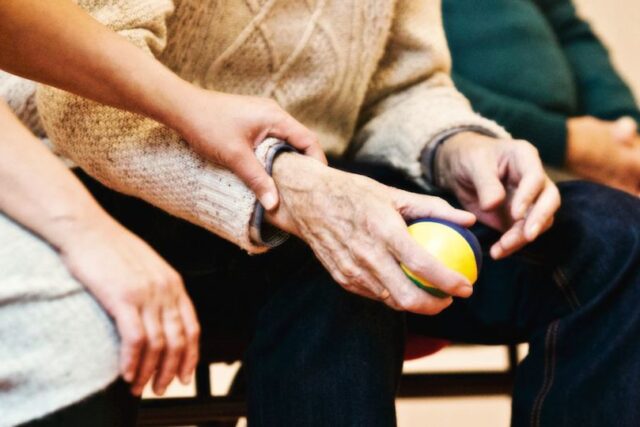As a home caregiver, your main responsibility is taking care of another person. But in pursuit of this goal, it’s easy to neglect taking care of yourself. If you want to provide better care to the patients you serve and increase your own personal wellbeing, you need to prioritize self-care.
So how do you do it?
Why Self-Care Is Important
These days, caregivers come in many varieties. Professionally trained, paid caregivers are available independently and through services – but it’s also possible to earn money as an amateur caregiver for a friend or relative (if you qualify).
Regardless of how much training, knowledge, or experience you have, it’s important to practice self-care for several reasons:
· Preventing burnout. If you overburden yourself with work and stress, you’ll eventually burn out. Burnout looks different for different people, but it could mean anything from a simple career change to a full mental breakdown. You’ll want to avoid burnout at all costs, and self-care is a reasonable strategy that can reliably help you avoid it.
· Improving your interactions. Better self-care also puts you in a much better position to interact with your patients on a regular basis. You’ll be healthier, happier, more confident, and less stressed, which can ultimately turn you into a better caregiver.
· Increasing your sense of wellbeing. This isn’t just about being able to perform your job well; it’s also about increasing your sense of wellbeing. If you routinely prioritize your own self-care, you’ll be physically and mentally healthier – which means you’ll most likely be happier as well.
How to Practice Self-Care as a Home Caregiver
So what actionable steps can you take to practice better self-care as a home caregiver?
· Take your time off seriously. Being a home caregiver can test your boundaries, so make sure to take your time off seriously. There’s nothing wrong with picking up extra hours or fulfilling some extra tasks when you feel capable, but it’s also important to take time away from the job. Every week, you should have at least several hours of time to yourself; don’t feel pressured to sacrifice this.
· Take frequent breaks and vacations. Each day on the job, you should take several breaks, even if those breaks are relatively short. You need time to collect your thoughts, take a breath, and relieve some of the stress of the job. Occasionally, you should also take longer vacations; they’re great for your stress levels and overall health. Ideally, you’ll use this as an opportunity to travel, indulge yourself, and truly relax.
· Recognize your limits. Caregivers are often passionate and empathetic people, but these characteristics sometimes lead people to overestimate their own abilities. No matter how much you care or how emotionally strong you are, there’s an upper limit to how much you can give. Make sure you know where that upper limit is and avoid crossing that threshold.
· Communicate assertively and constructively. Issues are bound to arise when you provide home care, whether those issues are with the person you’re caring for or the employer who hired you. Whenever these issues arise, do your best to communicate assertively and constructively. Don’t be afraid to ask for what you want or recognize your own limitations; staying quiet or allowing your frustrations to explode are equally problematic outcomes.
· Practice healthy stress coping. Caregiving is an incredibly stressful job, so it’s important to have healthy coping strategies in place so you can deal with that stress. There are countless options to choose from here, including meditation, journaling, deep breathing strategies, and anxiety management techniques. The more you practice these, the more naturally they’ll come to you.
· Prioritize healthy habits in your personal life. You’ll be better at beating stress if you practice healthy habits in your own personal life. Strive to eat a healthy, balanced diet (with little to no junk food), get plenty of sleep, and try to exercise every day.
· Be ready to ask for help. Call upon the other people in your life to help you when you need support. That could mean asking a spouse to cook dinner for the week, calling a friend to vent, or anything in between.
· Acknowledge signs of burnout (before it’s too late). Finally, learn to recognize the early signs of burnout so you can take action before it’s too late. If you start experiencing headaches, trouble sleeping, or other physical manifestations of your stress, it’s time for a bigger intervention.
As a caregiver, you already have at least some of the knowledge and skills necessary to provide adequate care to others; all you have to do is turn that energy and momentum inward to take better care of yourself. Practice these self-care strategies consistently, and you’ll be much less stressed, much less vulnerable to burnout, and better at your primary responsibilities as well.



Lastest Posts
Lifestyle
Big Game Hunting in The Iberian Mountains: Must-Visit Destinations for Hunters
Education
How machine translation is changing the industry: When to use it and when to avoid it?
Health
EEG Analysis: Technology Connecting the Brain to the Future
Marketing
Advancements in Solar Panel Technology: Illuminating the Path to a Sustainable Future
Lifestyle
How to Build a Capsule Wardrobe: Essentials for Every Man
Lifestyle
Women in the Catholic Church: Roles, Recognition, and Calls for Change
Marketing
Experiential Marketing for Brands: Crafting Unforgettable Consumer Connections